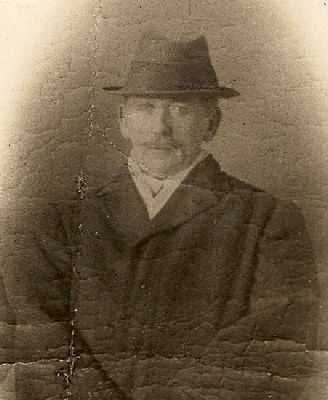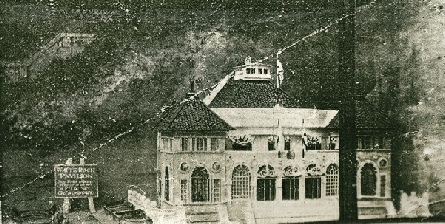
Friends
Of
Hastings
Cemetery
Francis was born in Brighton on 11 Aug 1863.
He married Annie Cluett in 1888 at Gosport, Hampshire.
They had four children,
Robert Francis C. Cowley (1889-
Dorothy Cowley (Abt 1893-
Harry Chrichton Cowley (Abt 1896-
Frederick Cowley (Abt 1902-
At the time of the 1901 census the family was living at 38, Alexandra Road, Hasting an hius occupation was artistic chef.
1911 census -
Hastings and St Leonards Observer -
At 3.15 Mrs. Tuppenny (president of the B.W.T.A.) will preside a united women's meeting, addressed by Mr. F. Cowley (United Kingdom Alliance).
Mr F. Cowley (of the United Kingdom Alliance)
Hastings and St Leonards Observer -
…..The bride was Miss Dorothy Winifred Cowley, only daughter Mr. and Mrs. F. T. Cowley. 9 Maze-
Hastings and St Leonards Observer -
Advertisement: Frank Cowley
For many years at Addisons as Chef Designer and Executant of the many artistic productions both in cuisine and Confections, desires a position where a progressive, earnest skilful man would be appreciated.
Expert in high-
Just the man to develop a new business or one that requires originality and reviving after the past two years.
Gold medallist Food and Cookery, and Agricultural Hall Exhibitions.
All communications treated in strictest confidence.
Derwent Lodge, Maze Hill, St Leonards.
 Sugar model of the White Rock Pavilion in Hastings created by Francis T. Cowley
Sugar model of the White Rock Pavilion in Hastings created by Francis T. Cowley
After the death of Annie, Francis married Ethel Florence Goldsmith (13 Feb 1900 -
Francis died on 17 Jan 1927 at 15, Linton Crescent, Hastings, Sussex from Influenza, bronchitis, broncho pneumonia.
After the death of Francis, Ethel married Maurice A. Harbord.
Due to difficulties in the years following Francis' death, the two girls born to Ethel Florence Goldsmith and Francis were handed over to the care of Dr. Barnado's Homes. The children were subsequently sent to Australia. (The exact dates of these occurrences are not known.)
"Dr. Barnardo's Homes, as Barnardo's was then known, was one of many children's charities involved in child migration. The practice, which began in earnest in the late 1800s and started to decline rapidly after World War II, was born from the idea of offering children an opportunity of a new start in life, in a new country.
This was a popular policy, supported by the British government, who believed that the children would benefit from opportunities they wouldn’t have in the UK.” -